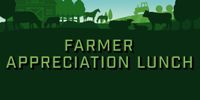Canadian Agriculture Literacy Month has returned this year to an entirely in-person experience for the first time since 2019.
Janique Borst visited Fort la Reine School students, a dairy farmer from Elm Creek shared all about what they do on her farm in honour of the month.
Claudia Verwey, a Grade 1 & 2 teacher at Fort la Reine, explains that coming from a farm family, she is always trying to make a point of teaching about agriculture.
"A lot of the kids in our classes here don't really have that connection to the farm. So, it was nice for them to see how their milk and cheese comes from the farm and gets to them in their homes."
Verwey adds that Borst taught the students how to appreciate the land we live on.
"She (Borst) came in and just told us a bit about her farm by Elm Creek. She showed the kids all kinds of pictures about how a dairy farm runs."
Janique Borst from Halarda Farms Ltd. tells PortageOnline that she enjoyed the experience of getting into a classroom and telling students what goes on.
"People have very little idea of what happens on a farm in 2023. Things have changed. We see the large world and country, and we try to do that as efficiently as possible. When I go into the classroom, I try to lay that out for the kids, too."
Borst notes that the students were fascinated that her family's farm started in 1984 and that they milk over 1000 cows.
 Photo Credit: Fort la Reine School
Photo Credit: Fort la Reine SchoolKatharine Cherewyk, Executive Director of Agriculture in the Classroom Manitoba, outlines that the month's goal is to create resources, programs and tools for teachers that help connect students to the food they eat.
"We match volunteers from the community who work in agriculture and match them to classrooms who register for the program and want volunteers to come in and share their story."
Fostering critical thinking about food, fibre, feed and fuel, is a vital part of education, adds Cherrick.
"We do need a population now, and in the future, that understands agriculture and trusts that everyone is working hard to produce our food is sustainable and affordable. We want them to have trust in the whole food production industry."
Cherewyk concludes that she hopes the students who participated in Canadian Agriculture Literacy Month will consider joining the agriculture workforce and solving new problems on food security and sustainable food production.











